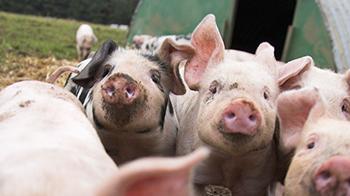- Find a Pet
- Advice and Welfare
- Ways to Give
- Get Involved
- What We Do
- Search
- My RSPCA
- Report a concern
- Gift in Wills
-
Colour modeVivid Calm
- Home
- What we do
- End cruelty
- Change the law
- Brexit
Brexit and animal welfare
We're campaigning to ensure animal welfare isn't compromised and our high standards are protected as new trade deals are negotiated now we've left the EU. We'd like to see the process of leaving the EU as an opportunity to improve animal welfare.
What Brexit puts at risk for animal welfare
- 80 percent of current animal welfare legislation comes from EU law (with over 40 animal welfare laws)
- EU animal welfare laws cover four key areas - there are 17 laws relevant to farm animals, 11 laws for wildlife, eight laws covering animals used in research, and four laws about companion animals
- Now we've agreed on two trade agreements there's a possibility that new trade agreements will be made with countries that have lower animal welfare standards. For example, the USA gives growth hormones to their cows, still uses conventional battery cages (in most states), doesn't have species-specific slaughter regulations and still uses sow stalls in most pig production
You can find a more detailed summary of animal welfare laws in the UK before and after Brexit in Brexit - getting the best for animals (PDF 4.24MB).

What we want to see for animal welfare post Brexit
Now we've left the European Union we want to see the UK and Welsh Governments put animal welfare forefront in legislation and trade negotiations. In 2022, we'd like to ensure the following is maintained or improved upon:
- Improvement in key areas of animal welfare, such as puppy imports, long-distance transport, ending live exports, food labelling and stopping fur imports
- A new system of farm subsidies in Wales - rewarding the farming industry for higher welfare standards
- Free trade agreements that prohibit products being imported with lower welfare standards
For further information on these issues please read our briefing on trade agreements report.



